Discover Ri Science Podcast
Ri Science Podcast

Ri Science Podcast
Author: The Royal Institution
Subscribed: 1,013Played: 18,666Subscribe
Share
© The Royal Institution
Description
Explore a new area of science every month from the world's sharpest minds. 'From the Theatre' episodes every second Wednesday of the month, bringing you talks from the Ri's world-renowned Theatre. Ri Science Podcast original episodes every last Wednesday of the month, lifting the lid on the science all around us.
106 Episodes
Reverse
Medical research is continuously evolving with new technologies, but another key player in spurring this evolution is mathematics. Mathematician and healthcare engineering expert Becky Shipley joins us to discuss the role mathematics is playing in medical research, and some of the fascinating and innovative technologies she's been a part of developing. About 'From the Lab':This is the first of our new 'From the Lab' series, taking the place of our 'From the Theatre' episodes. UCL are celebrating their 200th anniversary in 2026, and we've collaborated with them to host UCL researchers as our Discourse speakers throughout 2026. As part of this collaboration, we'll be bringing you episodes with each of these speakers two weeks before their Discourses to explore their research topics further and give you a sneak peek of what's to come in their Discourse. Buy tickets to Becky's Discourse on Friday 30 January on our website.Ri Science Podcast episodes are released on the last Wednesday of every month, and 'From the Lab' episodes are released on the second or third Friday of the month (two weeks before their respective Discourse). Subscribe to be notified as soon as the next episode is released! Book tickets to upcoming talks on our website Subscribe to our YouTube channel Follow us: @ri_science on Instagram and TikTok Producer and presenter: Lia HaleMusic: Joseph Sandy
From the scientific mechanisms underlying ACL injuries, the application of computational fluid dynamics in the COVID-19 pandemic, and even the latest space mission on the way to Mercury, we've covered an enormous range of science on the Ri Science Podcast throughout 2025. In this year's Science Wrapped episode, we take a look back over our favourite moments from the past year to give you a snippet of what you might have missed, and a taste of what's to come in 2026.Ri Science Podcast episodes are released on the last Wednesday of every month, and our new ‘From the Theatre’ episodes are released on the second Wednesday of the month. Subscribe to be notified as soon as the next episode is released! Book tickets to upcoming talks on our website Subscribe to our YouTube channel Follow us: @ri_science on Instagram and TikTok Producer and presenter: Joshua HortonExecutive producer: Lia Hale
We’re bringing you this month’s From the Theatre episode from the Space Park in Leicester, joined by Professor of Space Physics Suzie Imber. Suzie is a Co-Investigator on the Mercury Imaging X-Ray Spectrometer (MIXS) instrument onboard BepiColombo, the joint mission between ESA and JAXA currently on its way to Mercury. We explore the history of Mercury investigations, why it has been studied so much less than other planets, and what scientists are hoping to learn from BepiColombo. To discover more space science, tune into the 200th CHRISTMAS LECTURES from the Royal Institution with Dame Dr Maggie Aderin-Pocock on 28th, 29th and 30th December on BBC4 and BBC iPlayer. Ri Science Podcast episodes are released on the last Wednesday of every month, and our new ‘From the Theatre’ episodes are released on the second Wednesday of the month. Subscribe to be notified as soon as the next episode is released! Book tickets to upcoming talks on our website Subscribe to our YouTube channel Follow us: @ri_science on Instagram and TikTok Producer and presenter: Lia Hale Music: Joseph Sandy
This December, space scientist and renowned science communicator Dame Dr Maggie Aderin-Pocock will be presenting the CHRISTMAS LECTURES in their 200th year titled ‘Is there life beyond earth?’. Maggie joins us on the podcast this month to explore the history of space imaging and the huge number of projects she has worked on throughout her career, as well as her experiences navigating the scientific world and some of the biggest questions remaining in space science today. Tune into the CHRISTMAS LECTURES this December between Christmas and New Year, on BBC Four and iPlayer. Ri Science Podcast episodes are released on the last Wednesday of every month, and our new ‘From the Theatre’ episodes are released on the second Wednesday of the month. Subscribe to be notified as soon as the next episode is released! Find out more about the 2025 CHRISTMAS LECTURES Book tickets to upcoming talks on our website Subscribe to our YouTube channel Follow us: @ri_science on Instagram and TikTok Lead producer and presenter: Lia Hale Assistant producers: Mohsina Asif, Poppy Aves, Mia Buxton
In this month's 'From the Theatre' episode, we visited New Scientist Live at the Excel to explore what scientists are most excited about for 2026. From insects performing amputations to the latest developments at the Large Hadron Collider, discover what innovations are happening across a range of scientific disciplines. This episode was recorded on Sunday 19 October 2025.Presented and produced by Lia HaleMusic by Joseph SandyRi Science Podcast episodes are released on the last Wednesday of every month, and our new ‘From the Theatre’ episodes are released on the second Wednesday of the month. Subscribe to be notified as soon as the next episode is released! Book tickets to upcoming talks on our website Subscribe to our YouTube channel Follow us: @ri_science on Instagram and TikTok
Mechanical engineer and broadcaster Shini Somara joins us this month to uncover some of the fascinating and often under-appreciated innovations in the world of engineering, ahead of her double bill of talks at the Ri on Saturday 1 November. Shini discusses how computational fluid dynamics (CFD) transformed our understanding and management of Covid-19, and how the field has changed dramatically with the computing advancements and introduction of AI in recent years. Book tickets to join Shini this weekend for her family and adult talks Subscribe to our YouTube channel Follow us: @ri_science on Instagram and TikTok Ri Science Podcast episodes are released on the last Wednesday of every month, and our new ‘From the Theatre’ episodes are released on the second Wednesday of the month. Subscribe to be notified as soon as the next episode is released! Produced and presented by Lia HaleMusic by Joseph Sandy
In this month's From the Theatre episode, we revisit past Christmas Lecturer Hannah Fry's talk on the power of algorithms to continue celebrating our Discover200 campaign.Hannah Fry takes us on a tour of the good, the bad and the downright ugly of the algorithms that surround us. She lifts the lid on their inner workings, to demonstrate their power, expose their limitations, and examine whether they really are an improvement on the humans they are replacing.This talk was filmed at the Ri on 30 November 2018.Ri Science Podcast episodes are released on the last Wednesday of every month, and ‘From the Theatre’ episodes are released on the second Wednesday of the month. Subscribe to be notified as soon as the next episode is released!Browse upcoming talks and livestreams on our website Subscribe to our YouTube channel Follow us: @ri_science on Instagram, TikTok and @rigb.org on Bluesky
Sickle cell disorder is an inherited blood disorder that affects the shape of red blood cells, and can have an extreme impact on all different areas of the body. September marks Sickle Cell Awareness Month, so we wanted to draw attention to the science underlying this often-misunderstood disease. We are joined by researcher Sara El Hoss and sickle cell patient and advocate Stephanie George to discuss everything from the diagnostic journey to the fascinating research investigating future treatment methods. Trigger warning: This episode includes discussion of depression and self-harm. If you are struggling with things of this nature, we have linked some resources below to help you find the right support for you. Mental health resources: https://www.mind.org.uk/information-support/guides-to-support-and-services/seeking-help-for-a-mental-health-problem/where-to-start/ https://www.samaritans.org/how-we-can-help/contact-samaritan/ Sickle Cell resources: https://www.sicklecellsociety.org/ https://ascatconferences.com/ https://www.instagram.com/redcellsrus/ https://www.instagram.com/steph_has_sicklecell_/ https://www.nhs.uk/conditions/sickle-cell-disease/ Producer: Lia HaleAssistant producer: Poppy AvesMusic: Joseph SandyRi Science Podcast episodes are released on the last Wednesday of every month, and our new ‘From the Theatre’ episodes are released on the second Wednesday of the month. Subscribe to be notified as soon as the next episode is released! Browse upcoming talks and livestreams on our website Subscribe to our YouTube channel Follow us: @ri_science on Instagram and TikTok
We're bringing you even more Spotify content, by sharing one of our world-famous lectures on every second Wednesday of the month through 'From the Theatre' episodes. Don't worry, Ri Science Podcast episodes are still coming every last Wednesday, but these will help to tide you over in the meantime. How does the body affect our brain, and vice versa? Can exercise, psychedelics, or the gut biome improve your mental health? Find out with neuroscientist Camilla Nord.This talk was recorded at the Ri on 4 March 2024.Ri Science Podcast episodes are released on the last Wednesday of every month, and our new ‘From the Theatre’ episodes are released on the second Wednesday of the month. Subscribe to be notified as soon as the next episode is released! Book tickets to upcoming talks on our website Subscribe to our YouTube channel Follow us: @ri_science on Instagram and TikTok
Everywhere you look across the scientific landscape, AI and big data play a vital role. But is that role good or bad? This year’s Nine Dots Prize question looked to tackle just that, and award-winning science journalist and neuroscientist Grace Huckins’ entry was deemed the most innovative. Grace joins us this month to discuss how AI could be changing the way science operates, and how data has transformed the field of neuroscience specifically. Read an extract from Grace’s winning essay: https://ninedotsprize.org/extract-from-grace-huckins-winning-entry/ Producer and presenter: Lia Hale Assistant producer: Poppy Aves Music: Joseph Sandy Ri Science Podcast episodes are released on the last Wednesday of every month, and our new ‘From the Theatre’ episodes are released on the second Wednesday of the month. Subscribe to be notified as soon as the next episode is released! Book tickets to upcoming talks on our website Subscribe to our YouTube channel Follow us: @ri_science on Instagram and TikTok
How similar is your microbiome to your dog’s? How do volcanoes influence the microbiome of the earth? And what links the microbiome to epilepsy? It’s not just the gut that has a microbiome – everything from your phone screen to the soles of your shoes has a community of microorganisms residing together that forms a microbiome. But the microbiome in the gut specifically has a huge impact on our bodily functioning, and we can learn a lot about our own gut microbiome by looking at those of domesticated animals like dogs. This month, we’re joined by Bushra Schuitemaker, a microbiologist and head of science and research at Biome9, to understand what we can learn from the microbiomes around us. Ri Science Podcast episodes are released on the last Wednesday of every month. Subscribe to be notified as soon as the next episode is released! Producer and presenter: Lia Hale Music: Joseph Sandy Ri Science Podcast episodes are released on the last Wednesday of every month, and our new ‘From the Theatre’ episodes are released on the second Wednesday of the month. Subscribe to be notified as soon as the next episode is released! Book tickets to upcoming talks on our website Subscribe to our YouTube channel Follow us: @ri_science on Instagram and TikTok Learn more about Biome9 and Dogileptic
The Women's Euros kick off next Wednesday, once again bringing attention to the epidemic of anterior cruciate ligament (ACL) injuries in women’s football. But why is it that women are six times more likely to suffer from these injuries, and what research is being done to understand it further? This month we’re looking at the science behind the ACL, and what factors researchers are investigating that influence injury susceptibility. We’re joined by Blake Rivers, whose PhD at Kingston University is being funded by FIFA to investigate the impact of the menstrual cycle on ACL injuries, and Grace Vella, a footballer and entrepreneur who is 5 months into her ACL rehabilitation following on from reconstructive surgery. Producer: Lia Hale Assistant producer: Jessica Hibbert Music: Joseph Sandy Ri Science Podcast episodes are released on the last Wednesday of every month, and our new ‘From the Theatre’ episodes are released on the second Wednesday of the month. Subscribe to be notified as soon as the next episode is released! Book tickets to upcoming talks on our website Subscribe to our YouTube channel Follow us: @ri_science on Instagram and TikTok
When we think of the biggest historical figures in science, names like Isaac Newton and Michael Faraday tend to come to mind. But the discoveries made by these individuals could never have happened without the contributions of countless others around the world, whose names and stories are often left out of the picture. Former Royal Institution Freer Fellow Gianamar Giovannetti-Singh spoke at the Ri to shed light on some of these untold stories, and to help us adopt a more global understanding of the history of science. Ri Science Podcast episodes are released on the last Wednesday of every month, and our new ‘From the Theatre’ episodes are released on the second Wednesday of the month. Subscribe to be notified as soon as the next episode is released! Book tickets to upcoming talks on our website Subscribe to our YouTube channel Follow us: @ri_science on Instagram and TikTok This talk was recorded in the Theatre at the Royal Institution on Monday 14 May 2024 Producer: Lia Hale Music: Joseph Sandy
How do microbes including bacteria become resistant to treatment? What can we do to prevent it? And why do we have tuberculosis to thank for the creation of cowboy hats? This month, PhD student and award-winning science communicator Gabriel Astorga joins us to answer all these questions and more, as we look under the hood of antimicrobial resistance. Ri Science Podcast episodes are released on the last Wednesday of every month, and our new ‘From the Theatre’ episodes are released on the second Wednesday of the month. Subscribe to be notified as soon as the next episode is released! Book tickets to upcoming talks on our website Subscribe to our YouTube channel Follow us: @ri_science on Instagram and TikTok Read more about the UKHSA campaign here Follow Gab on Instagram and YouTube Producer: Lia Hale Music: Joseph Sandy
John Tyndall first announced his discovery of greenhouse gases in a Royal Institution Discourse back in 1862. Since then, our understanding of the science of climate change has come on leaps and bounds in some areas, but in others we are only just scratching the surface. This month, we hear from neuroscientist-turned-journalist Clayton Aldern and Professor of Neurology Sanjay Sisodiya about how climate change affects our brains. From memories passed through generations to the impact of heat on neurological disorders such as epilepsy, we dive deeper into the neuroscience underlying climate change. Ri Science Podcast episodes are released on the last Wednesday of every month, and our new ‘From the Theatre’ episodes are released on the second Wednesday of the month. Subscribe to be notified as soon as the next episode is released! Book tickets to upcoming talks on our website Subscribe to our YouTube channel Follow us: @ri_science on Instagram and TikTok Producer: Lia HaleMusic: Joseph Sandy
Sir David Spiegelhalter is a national treasure in the world of statistics, achieving everything from a knighthood to appearing on Total Wipeout. In light of giving the first Discourse in their bicentennial year, David explores how risk and uncertainty have affected his own life, and how to understand the statistics we see every day. Ri Science Podcast episodes are released on the last Wednesday of every month, and our new ‘From the Theatre’ episodes are released on the second Wednesday of the month. Subscribe to be notified as soon as the next episode is released! Book tickets to upcoming talks on our website Subscribe to our YouTube channel Follow us: @ri_science on Instagram and TikTok Producer: Lia Hale Music: Joseph Sandy
2025 marks the 200 year anniversary of the CHRISTMAS LECTURES from the Royal Institution, as well as Discourses and Michael Faraday’s discovery of Benzene. We’re celebrating throughout the year to mark the occasion, kicking off with a conversation between two previous Christmas Lecturers Chris van Tulleken and Monica Grady. They discuss their experiences giving the lectures, the importance of science communication to young people, and their advice for their successors. Find out more about the Discover200 campaign: https://www.rigb.org/discover200-ri This episode was recorded remotely on Monday 16 December 2024. Ri Science Podcast episodes are released on the last Wednesday of every month, and our new ‘From the Theatre’ episodes are released on the second Wednesday of the month. Subscribe to be notified as soon as the next episode is released! Book tickets to upcoming talks on our website Subscribe to our YouTube channel Follow us: @ri_science on Instagram and TikTok Interviewer: Lia Hale Producer: Lia Hale Music: Joseph Sandy
2024 has been a remarkable year for science, so we're taking a look back over the past year at our most memorable moments here on the Ri Science Podcast. From eggs to AI, sustainable plastics to protein folding, we've discussed a fascinating range of topics with even more fascinating guests including Jess Wade and Charan Ranganath. We can't wait to see what's in store in science for 2025, and thank you for listening and learning with us in 2024. With the exception of this episode, Ri Science Podcast episodes are released on the last Wednesday of every month, and our new ‘From the Theatre’ episodes are released on the second Wednesday of the month. Subscribe to be notified as soon as the next episode is released! Book tickets to upcoming talks on our website Subscribe to our YouTube channel Follow us: @ri_science on Instagram and TikTok Presenter: Katie MortimerProducer: Lia HaleMusic: Joseph Sandy
2025 is the International Year of Quantum Science and Technology, as marked by the UN, to celebrate 100 years since the birth of quantum mechanics. But quantum science is one of the least diverse areas of science in terms of gender and other protected characteristics. Jess Wade, a physicist and lecturer in functional materials at Imperial College London, has been fighting the inequality in quantum physics and beyond by creating thousands of Wikipedia pages for women scientists. Jess joins us this month to discuss the past, present, and future of quantum science along with what can be done to increase diversity within the field. Ri Science Podcast episodes are released on the last Wednesday of every month, and our new ‘From the Theatre’ episodes are released on the second Wednesday of the month. Subscribe to be notified as soon as the next episode is released! Book tickets to upcoming talks on our website Subscribe to our YouTube channel Follow us: @ri_science on Instagram and TikTok Producer: Lia Hale Assistant producers: Katie Mortimer, Isla Nakano Interviewer: Lia Hale Music: Joseph Sandy
Halloween means lots of sweets, which in turn means lots of packaging. We’re starting to see more of the packaging on our shelves labelled as sustainable in some way, but are they really? Mike Shaver is a Professor of Polymer Science and Director of the Sustainable Materials Innovation Hub at the University of Manchester, and joins us this month to unpick the current landscape of sustainable materials, and discuss whether or not a fully recyclable plastic is possible. Ri Science Podcast episodes are released on the last Wednesday of every month, and our new ‘From the Theatre’ episodes are released on the second Wednesday of the month. Subscribe to be notified as soon as the next episode is released! Book tickets to upcoming talks on our website Subscribe to our YouTube channel Follow us: @ri_science on Instagram and TikTok Producer: Lia Hale Music: Joseph Sandy


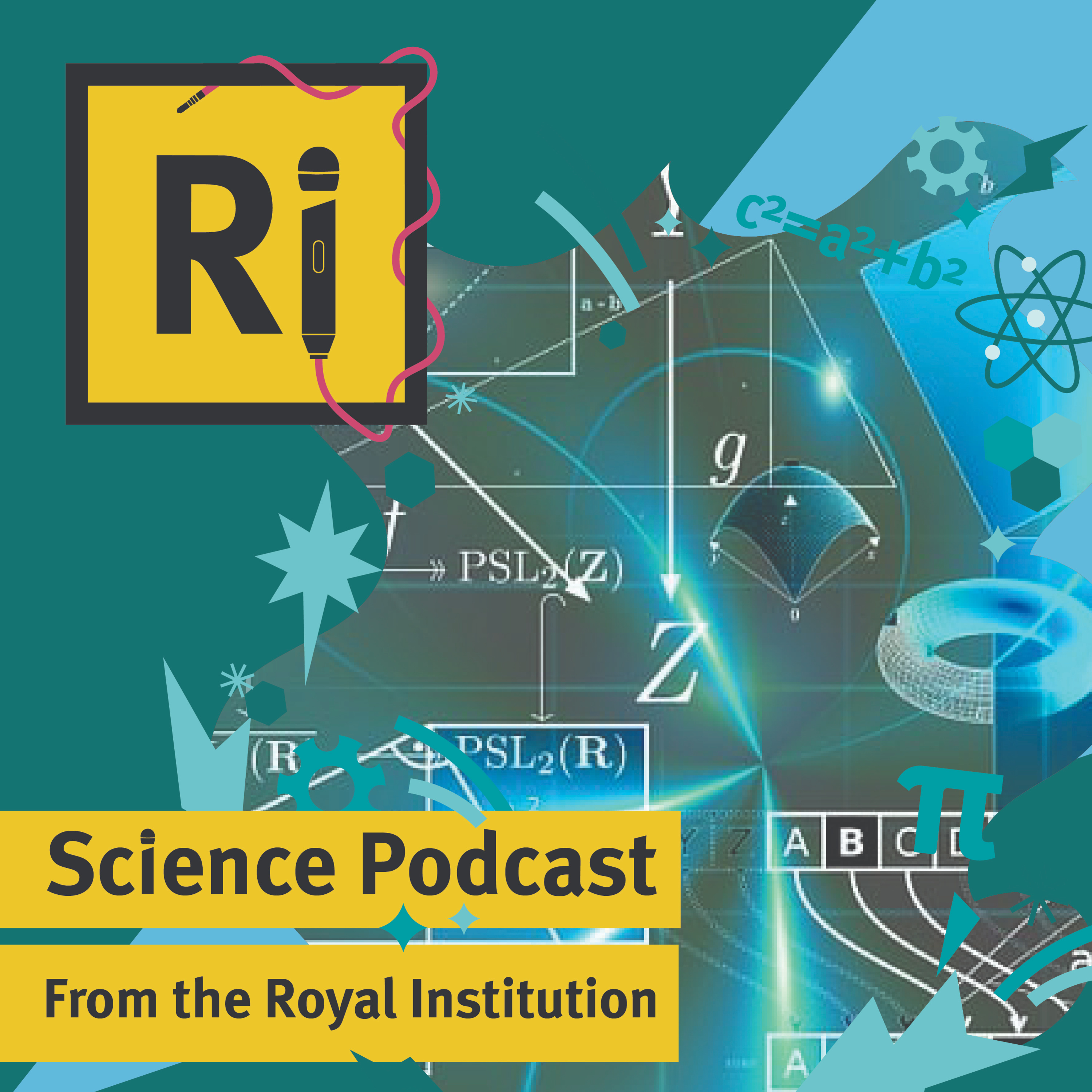
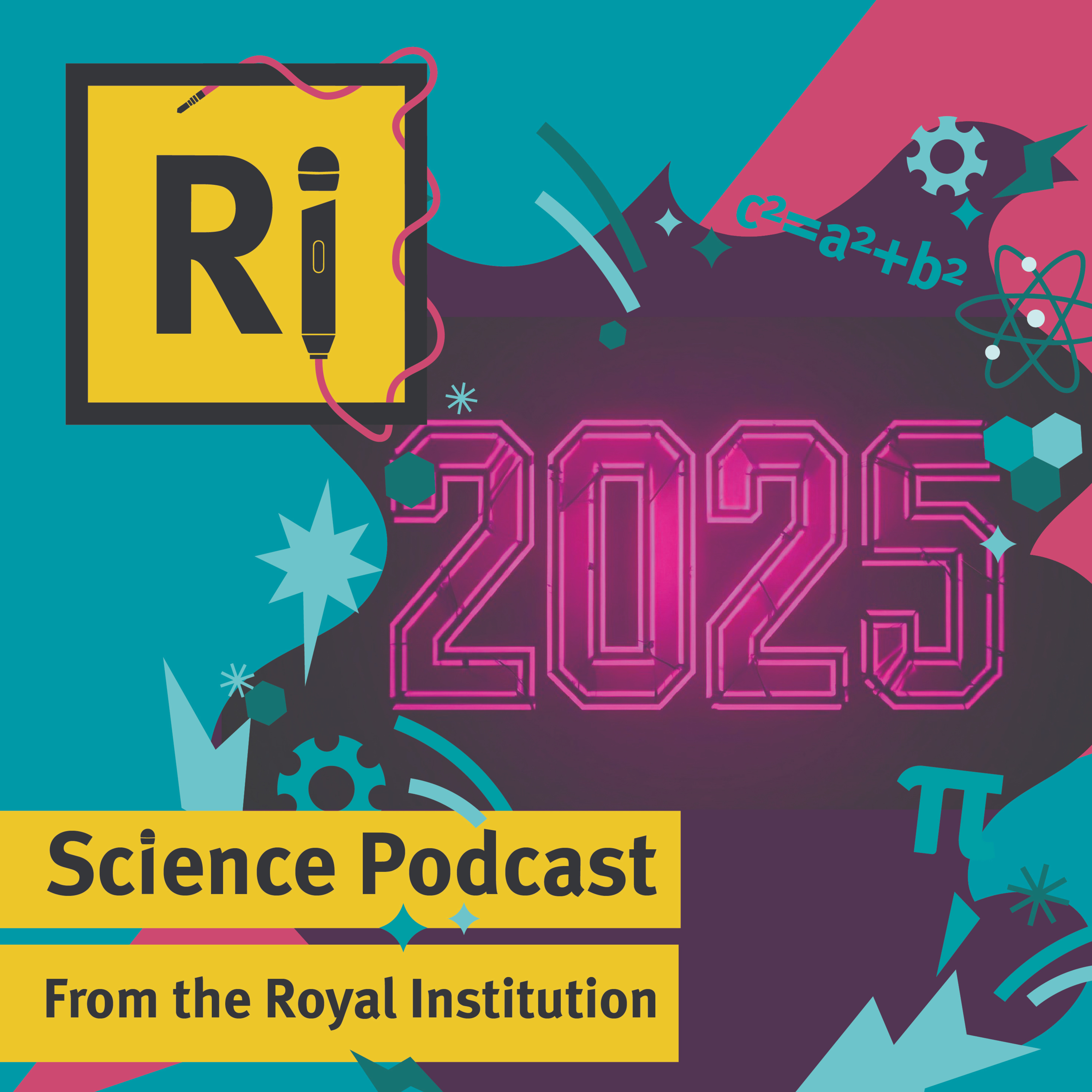
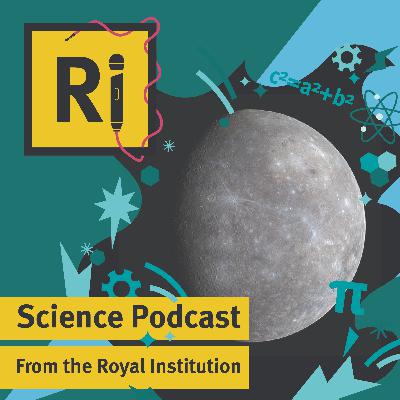
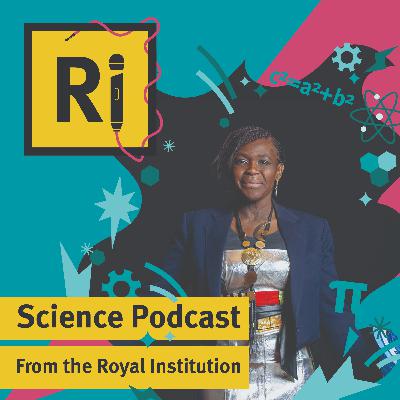

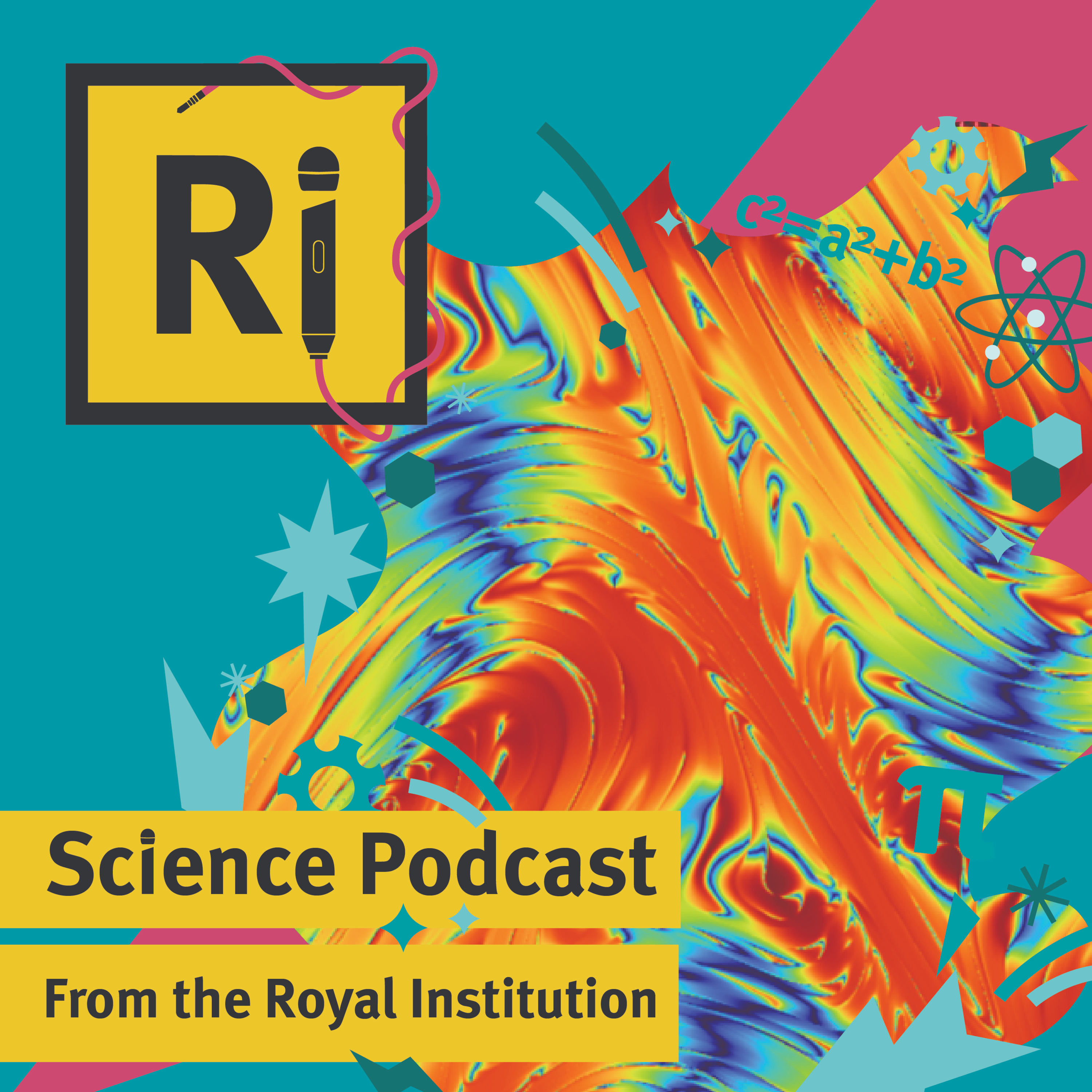

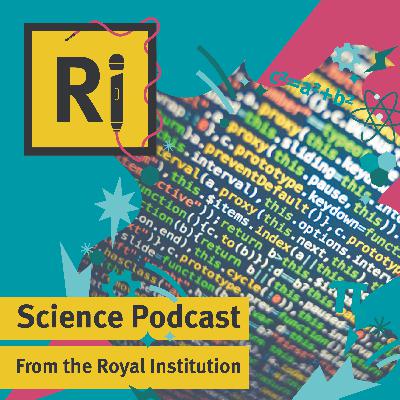
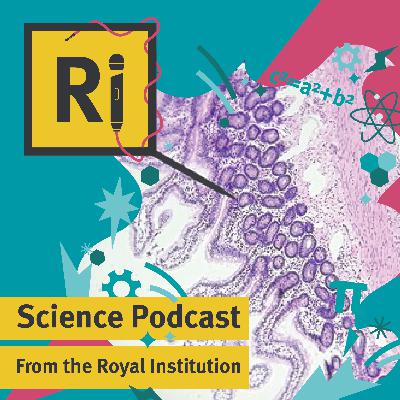


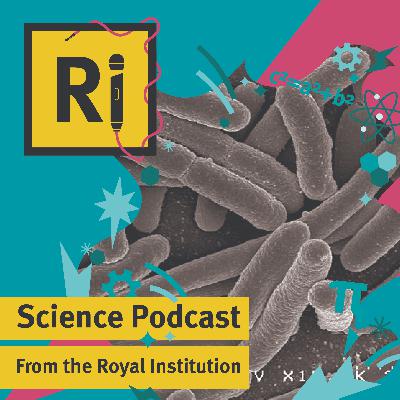


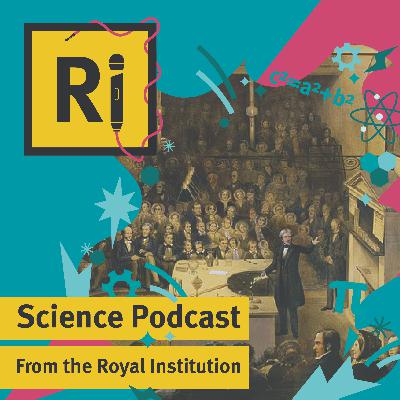
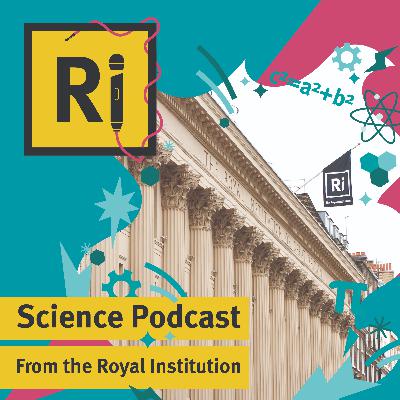
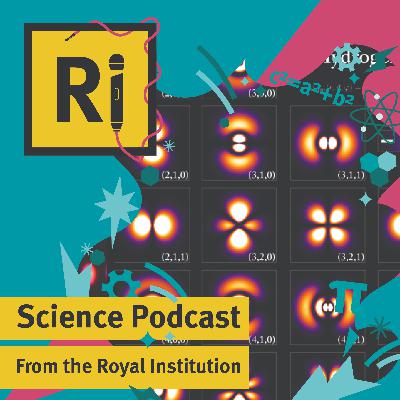
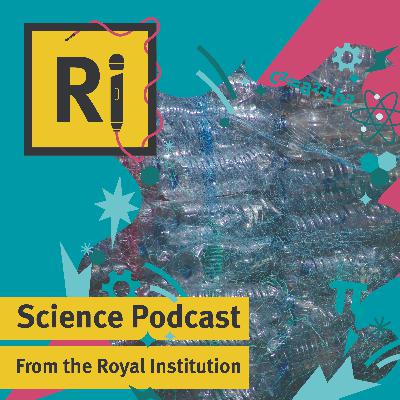



The Everest researcher is so frustrating to listen to with all the 'aaaarrrmms' and stuttering. Unfortunately, I couldn't finish listening.
'flat Earthers are actually smart people, who do experiments and know more than the experts' Nope, I'm done with this talk. Well done psychology, you have created another incredible scientist. Shame you're not as good a scientific discipline as flat earth! 😂